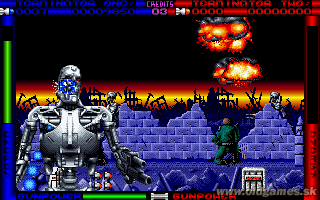Too light; Too heavy […]
Show full quote
Too light; Too heavy
Here's another "gotcha" old programs love to spring on you: Too little free DOS RAM (or too much--yes, too much free RAM. I'll get to that in a minute.) You all know the drill, so I'll only describe it in passing: A program requires 585K of free DOS RAM, but you only have 520K free. You can run MEMMAKER.EXE to free up some RAM in DOS 6.x, load your DOS kernel high in 5.x or later, or simply unload your memory-resident programs in 4.x and lower. Or, you can purchase a real memory manager like QEMM and let it handle the dirty work. Voila: more of your precious DOS RAM below 640K is free. Program runs. Since the task of freeing up DOS RAM has been told a thousand times before, I won't go into it.
But did you know that you can actually have too much free RAM? Honest! As late as 1990, games assumed that the maximum free RAM possible was around 585K free. After DOS 5.0, however, free RAM of 615K or higher was not uncommon. As a result, some programs' internal "free RAM counter" wraps around and you get a bogus error message. Take, for example, California Game, written by Epyx in 1988; if you have a reasonable amount of free RAM, you get this message when the game starts:
560 kB free CALIFORNIA GAMES version 1.01 2/23/88
You've got 145K RAM more than you need, Dude.
That's gnarly!
However, if you have too much free RAM, you get this:
618 kB free YOU NEED MORE RAM TO RUN CALIFORNIA GAMES!
You are 183K RAM short of having enough memory.
You need to buy more memory or remove
any memory resident programs, Dude!
